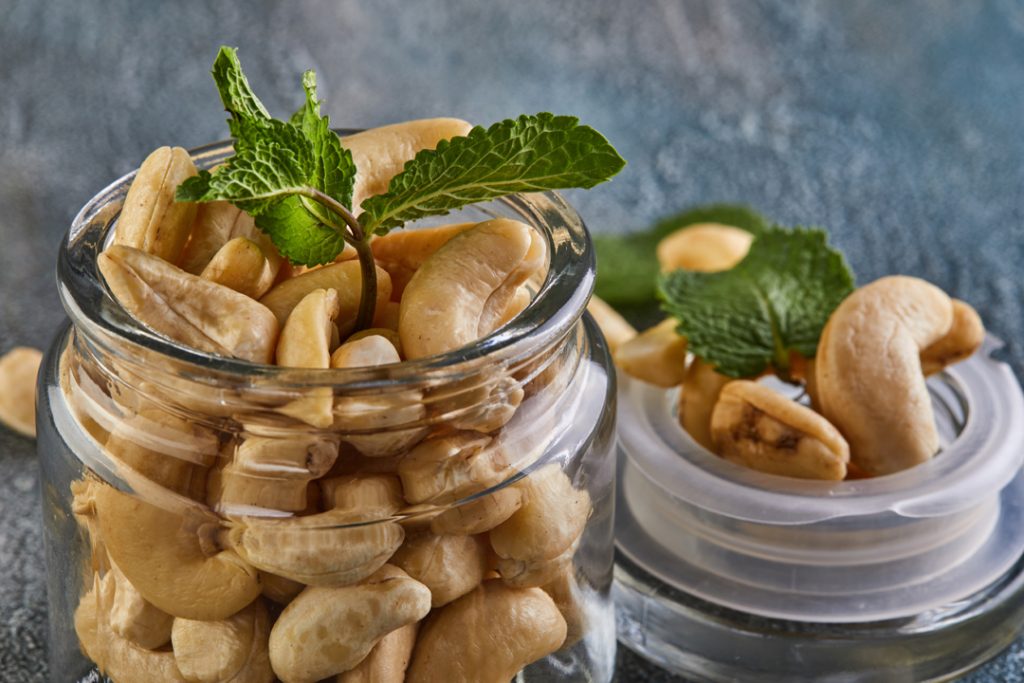
Kilimanjaro Cashew Nuts: A Nut Above the Rest
Nestled in the fertile lands near Mount Kilimanjaro, Tanzania’s Kilimanjaro cashew nuts have earned a stellar reputation as some of the finest in the world. Renowned for their creamy texture, rich flavor, and superior quality, these cashews are a standout in global markets. But what makes Kilimanjaro cashew nuts so exceptional? From their unique growing conditions to their nutritional benefits and meticulous processing, here’s a deep dive into why Kilimanjaro cashews are a cut above.
The Perfect Growing Environment
The Kilimanjaro region, with its volcanic soils and ideal climate, provides a natural haven for cashew cultivation. Cashew trees (Anacardium occidentale) thrive in warm, tropical conditions, and the area’s temperatures, ranging between 24°C and 28°C, are optimal for their growth. The region’s well-defined dry season of at least four months ensures better flowering and fruit setting, leading to high-quality yields. The volcanic soils, rich in minerals, further enhance the nuts’ flavor and nutrient density. These conditions, combined with traditional farming practices, create cashews that are plump, flavorful, and packed with goodness.
Tanzania is one of the world’s top cashew producers, and the Kilimanjaro region, alongside coastal areas like Mtwara and Lindi, plays a significant role in this industry. The cashew trees here benefit from deep, well-drained sandy loams, which allow for robust root development and contribute to the nuts’ size and quality. The region’s farmers, many of whom are smallholders, have honed their craft over generations, ensuring sustainable practices that preserve the land’s fertility.
Superior Quality and Flavor
Kilimanjaro cashew nuts are prized for their large size, creamy texture, and slightly sweet, buttery flavor. Unlike smaller or less consistent cashews from other regions, Kilimanjaro cashews are often graded as premium due to their uniform shape and high kernel quality. The nuts’ rich taste makes them versatile, perfect for snacking, cooking, or transforming into cashew butter, milk, or vegan cheese.
The quality of Kilimanjaro cashews is also a result of careful processing. Raw cashews contain urushiol, a toxic resin in their shells, which must be meticulously removed. In Tanzania, processing facilities employ skilled workers and modern techniques to roast or steam the nuts, ensuring safety while preserving flavor and texture. This attention to detail results in cashews that are consistently high-quality and free from contaminants, a factor that sets Kilimanjaro cashews apart in international markets.

Nutritional Powerhouse
Kilimanjaro cashew nuts aren’t just delicious—they’re a nutritional goldmine. Packed with essential nutrients, they offer a range of health benefits that make them a smart addition to any diet. A 1-ounce (28-gram) serving of cashews provides approximately:
- Calories: 157
- Protein: 5 grams
- Healthy Fats: 12 grams (mostly monounsaturated and polyunsaturated)
- Fiber: 1 gram
- Vitamins and Minerals: Copper (70% of RDA), magnesium, manganese, zinc, phosphorus, iron, and vitamins B6, E, and K
These nutrients contribute to numerous health benefits:
Heart Health:
The monounsaturated and polyunsaturated fats in cashews help reduce LDL (“bad”) cholesterol and increase HDL (“good”) cholesterol, lowering the risk of heart disease. Studies show that regular nut consumption can improve cholesterol levels and reduce blood pressure.
Blood Sugar Control:
Low in sugar and high in fiber, cashews have a low glycemic index, making them ideal for managing blood sugar levels. Research suggests that cashews can improve insulin sensitivity, benefiting those with type 2 diabetes.
Weight Management:
Despite their calorie density, cashews promote satiety due to their protein, fiber, and healthy fats. Studies indicate that the body may absorb only about 84% of cashew calories, aiding weight control when consumed in moderation.
Bone and Brain Health:
Magnesium and copper in cashews support bone strength and collagen production, while zinc and selenium promote cognitive function and protect against neurodegenerative diseases.
Antioxidant Boost:
Cashews are rich in polyphenols and carotenoids, antioxidants that combat inflammation and oxidative stress, potentially reducing the risk of chronic diseases like cancer and heart disease.
Sustainable Farming and Economic Impact
Kilimanjaro cashew nuts are more than a culinary delight—they’re a lifeline for local communities. Cashew farming supports thousands of smallholder farmers in Tanzania, providing income and stability. Organizations like the African Cashew Alliance work to enhance processing capabilities, ensuring that more value is added locally rather than exporting raw nuts. This boosts profitability and creates jobs, particularly for women who often handle harvesting and processing.
Sustainable practices, such as organic and fair-trade farming, are increasingly common in the Kilimanjaro region. These methods minimize environmental impact and ensure that the land remains fertile for future generations. By choosing Kilimanjaro cashews, consumers support ethical agriculture and contribute to the economic empowerment of Tanzanian farmers.
Why Kilimanjaro Cashews Stand Out
Several factors make Kilimanjaro cashew nuts exceptional:
Unique Terroir:
The volcanic soils and ideal climate impart a distinct flavor and quality. Meticulous Processing: Careful shelling and roasting preserve the nuts’ natural taste and safety.
Premium Grading:
Large, uniform kernels meet high global standards.
Nutritional Density:
Packed with heart-healthy fats, protein, and micronutrients.
Sustainability:
Ethical farming practices support local communities and the environment.

How to Enjoy Kilimanjaro Cashew Nuts
Kilimanjaro cashews are incredibly versatile. Enjoy them raw or roasted as a snack, sprinkle them over salads, or blend them into creamy sauces for curries and vegan dishes. In Tanzania, cashews are a staple in coastal cuisine, adding richness to dishes like kaju curry or coconut-based stews. For a sweet treat, try them in desserts like cashew brittle or energy bars. When purchasing, opt for unsalted or lightly salted varieties to maximize health benefits and avoid excessive sodium.
A Word of Caution
While Kilimanjaro cashews are generally safe and nutritious, moderation is key. Overconsumption can lead to weight gain due to their calorie content, and some individuals may experience allergic reactions, especially if allergic to other tree nuts. Additionally, cashews contain oxalates, which may contribute to kidney stones in susceptible individuals. A serving of about 18 nuts (1 ounce) per day is ideal for most people.
Conclusion
Kilimanjaro cashew nuts are a testament to the harmony of nature, tradition, and quality. Grown in the shadow of Africa’s highest peak, these nuts offer a perfect blend of flavor, nutrition, and sustainability. Their creamy texture and rich taste elevate any dish, while their health benefits make them a guilt-free indulgence. By choosing Kilimanjaro cashews, you’re not just savoring a world-class nut—you’re supporting a vibrant community and a legacy of excellence. So, the next time you reach for a handful of cashews, make it Kilimanjaro, and taste the difference that quality and care can make.

